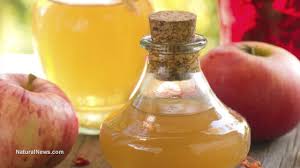
Breaking News
 Quantum walkie-talkie: China tests world's first GPS-free radio for border zones
Quantum walkie-talkie: China tests world's first GPS-free radio for border zones
 RIGHT NOW!: Why was lawyer Van Kessel, of the civil case on the merits in the Netherlands, arrested?
RIGHT NOW!: Why was lawyer Van Kessel, of the civil case on the merits in the Netherlands, arrested?
 PENSION FUNDS PANIC BUYING SILVER – Ratio Below 60 Triggers $50B Wave (Danger Next Week)
PENSION FUNDS PANIC BUYING SILVER – Ratio Below 60 Triggers $50B Wave (Danger Next Week)
 Dollar set for worst year since 2017, yen still in focus
Dollar set for worst year since 2017, yen still in focus
Top Tech News
 EngineAI T800: Born to Disrupt! #EngineAI #robotics #newtechnology #newproduct
EngineAI T800: Born to Disrupt! #EngineAI #robotics #newtechnology #newproduct
 This Silicon Anode Breakthrough Could Mark A Turning Point For EV Batteries [Update]
This Silicon Anode Breakthrough Could Mark A Turning Point For EV Batteries [Update]
 Travel gadget promises to dry and iron your clothes – totally hands-free
Travel gadget promises to dry and iron your clothes – totally hands-free
 Perfect Aircrete, Kitchen Ingredients.
Perfect Aircrete, Kitchen Ingredients.
 Futuristic pixel-raising display lets you feel what's onscreen
Futuristic pixel-raising display lets you feel what's onscreen
 Cutting-Edge Facility Generates Pure Water and Hydrogen Fuel from Seawater for Mere Pennies
Cutting-Edge Facility Generates Pure Water and Hydrogen Fuel from Seawater for Mere Pennies
 This tiny dev board is packed with features for ambitious makers
This tiny dev board is packed with features for ambitious makers
 Scientists Discover Gel to Regrow Tooth Enamel
Scientists Discover Gel to Regrow Tooth Enamel
 Vitamin C and Dandelion Root Killing Cancer Cells -- as Former CDC Director Calls for COVID-19...
Vitamin C and Dandelion Root Killing Cancer Cells -- as Former CDC Director Calls for COVID-19...
 Galactic Brain: US firm plans space-based data centers, power grid to challenge China
Galactic Brain: US firm plans space-based data centers, power grid to challenge China
Long before pills, our ancestors used these 12 natural antibiotics to survive infections

(NaturalNews) As readers of Natural News are well aware, the medical industry, in collusion with Big Pharma, has been over-prescribing antibiotics for years, resulting in new strains of superbugs that are difficult to kill. In point of fact, it's not at all improper to suggest that at some point in the future, our overuse of antibiotics may result in bacteria evolving to the point where nothing on earth can kill it.
Long before today's antibiotics were developed in labs, however, there were foods and herbs that helped us guard against infection and disease on a daily basis. Indeed, many of these natural anti-bacterial defenders are still around today, and are in use by holistic healers around the world.
Our ancestors had solutions for healing, utilizing antibiotics from nature which are still as valid now as they were then.
Oregano and oil of oregano: If you've ever had Italian food, chances are good that you've had oregano before, and you probably didn't even realize its health benefits. In addition to its antibacterial properties, oregano also aids in digestion and with weight loss. An oil found in oregano, called Carvacrol, has also been found to fight bacteria that can lead to infection.
Raw apple cider vinegar: This has far-reaching benefits. Daily intake of apple cider vinegar includes antibiotic and antiseptic benefits, while naturally alkalizing your system. It can also help you manage your weight, lower your cholesterol and reduce your risk of developing cancer.
Honey: The ancient Romans knew of honey's antibacterial properties, using it to treat wounds and prevent subsequent infections. And today, in countries all around the world, honey is still considered to be one of the best natural antimicrobials, anti-inflammatories and antiseptics, in addition to its antibacterial properties. In fact, Manuka honey, found in New Zealand, has been found to have the highest levels of antioxidants and curative abilities.
Turmeric: This brilliantly-colored spice is flavorful, but also has great body protection qualities. In addition, turmeric can be both consumed and applied externally, which makes it a great all-round bacteria fighter. For extra protection, you can mix turmeric with honey and create a paste to apply to skin.
Garlic: Again, more than just a wonderful seasoning, the garlic plant has very powerful qualities. It can fight the common cold, keeping germs at bay before they have a chance to infect you. A compound in garlic – allicin – protects against yeast, parasites, bacteria and more.
Grapefruit seed extract: According to the Journal of Alternative and Complementary Medicine, a study found that grapefruit seed extract is effective against more than 800 known viruses and bacteria, as well as more than 100 strains of fungi and parasites. Besides boosting antibacterial protection, this extract also alkalizes the body and improves gut flora.
Echinacea: Many people are not familiar with this product, but it certainly has wonderful antibacterial qualities. Found in kitchens, this herb has been proven to reduce the amount of colds that the average person may experience in a lifetime. Echinacea has also been found to shorten the duration of colds, but is best taken as a preventative measure.
Cabbage: A cruciferous vegetable, sulfur compounds found in cabbage are effective battlers of cancer, as are kale and broccoli, two other members of the same family. But cabbage also contains a massive amount of vitamin C, with one cup providing up to 75 percent of your daily recommended allowance.
Extra virgin coconut oil: You should be using more coconut oil anyway, because it's much better for you (because it's natural) than chemical-laced vegetable cooking oils, but in addition to that, extra virgin coconut oil has anti-microbial and anti-fungal properties, and is packed with antioxidants. Use it to boost your immune system.



